Because I’d read more bad than good about Guatemala City, I loosely considered skipping it. However, I’d come to realize that la capital is a terrific travel destination.
Like many travelers, upon arriving, I took a shuttle straight to Antigua and got to know that architecurally Spanish-style city for a week. In hindsight, that was more than was needed.
I’d eventually find Guatemala’s capital and business center to be more dynamic and interesting. It was far less touristy than Antigua, thus way more authentic.
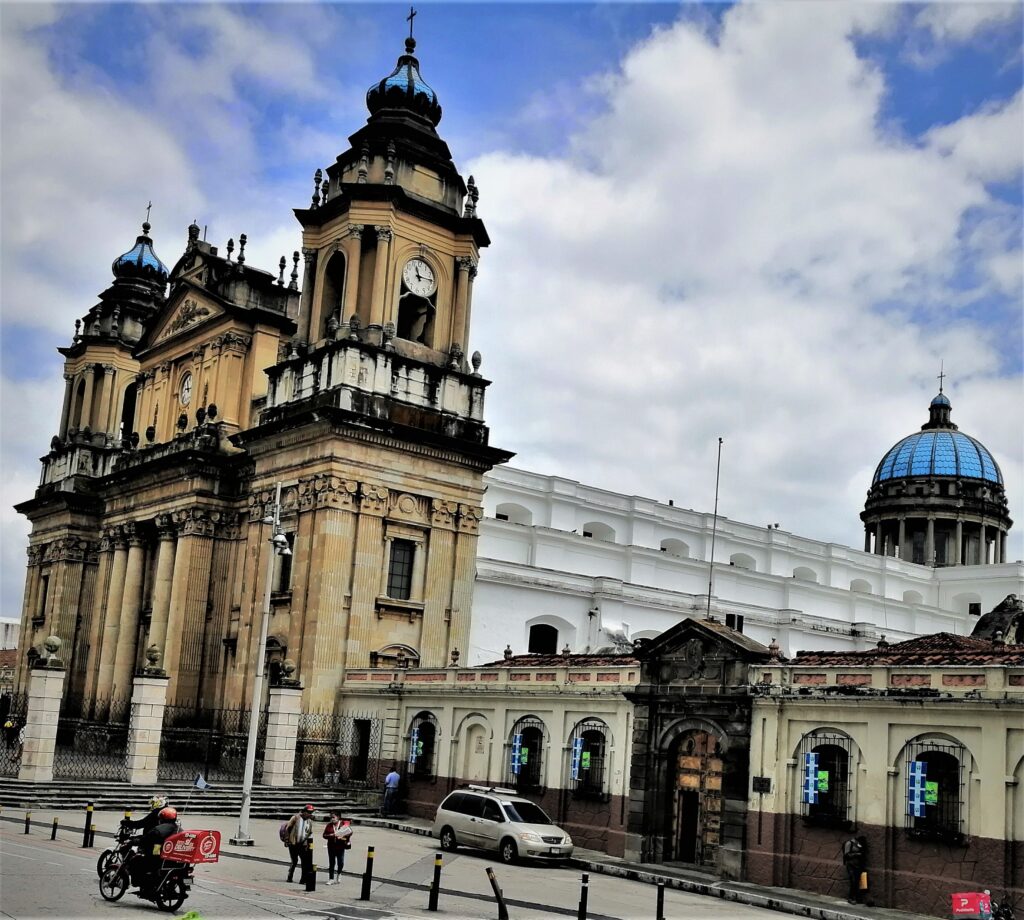
After Antigua, the unbound plan was to head towards mammoth Mexico, eventually cross the border, and leave Guatemala behind.
But then I read of experiences crossing the border. The visa Mexico now gives is from seven to 180 days, at the full discretion of the agent at the land border or airport. This lack of certainty caused second thoughts.
Mexico wants a return ticket and proof of paid accommodation, at least for your first destination. Those relatively new stipulations and and their uncertainty turned me off. So, I decided to stay in Guatemala longer and later fly out of Guatemala City.
Instead of going back to ultra-touristy and overrated Antigua, I was ready to spend a couple of days in Central America’s biggest city before flying out. . . and I am glad I did.
World Class Museums
There are around 50 museums in Guatemala City. I managed to visit two: the Museo Ixchel del Traje Indígena and the Museo Popol Vuh. Before visiting these world-class establishments, all I had read were positive things, which I found to be true.
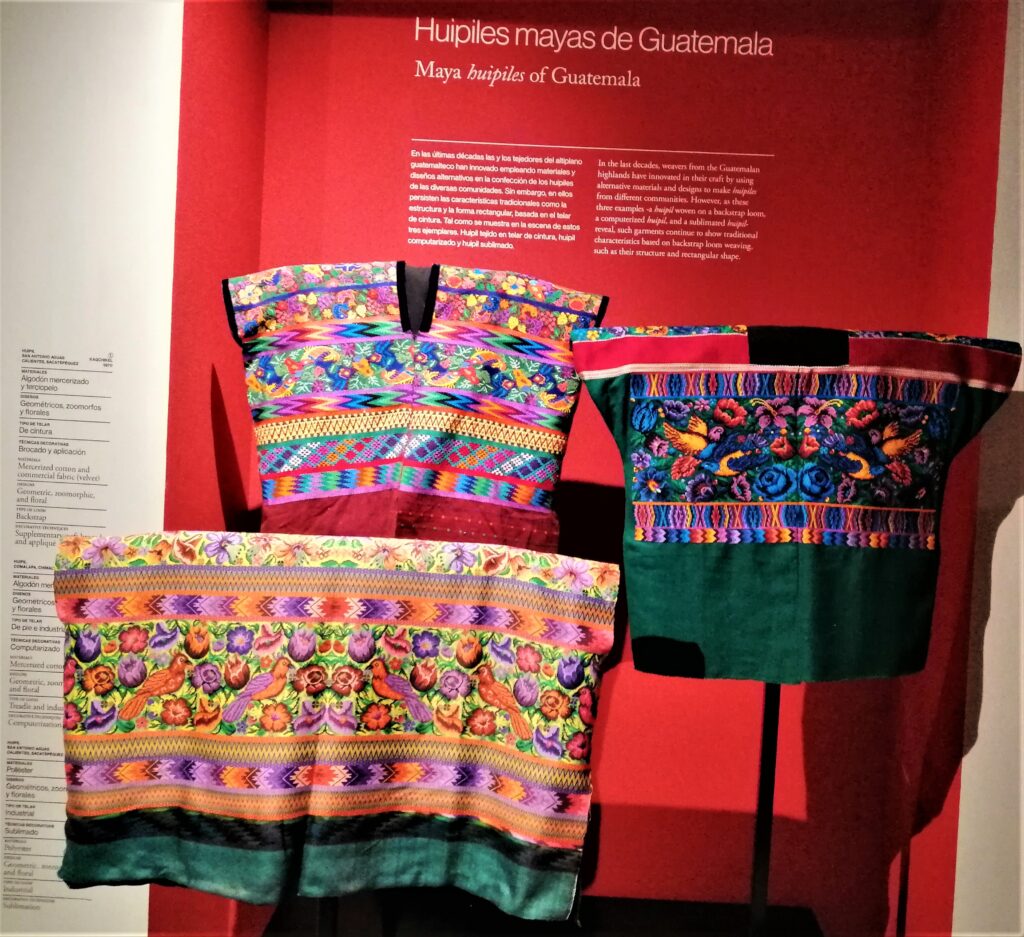
Throughout my time in Guatemala, I noticed extraordinary color contrasts on women every single day. At the museum, I was able to appreciate the designs and their intricate color patterns. I found these huipiles dynamic like the saris of India.

Not long ago most males wore traditional clothing. Now there are only a small percentage who do.

Both museums are on the UFM Universidad de Francisco Maroquín campus.
From Zona 4, I was able to walk there two mornings in a row. The urban stroll took 35 minutes.
I had to show a copy of my passport to get past university security at the entrance. The cost was 45 Quetzles ($5.71) for each museum. The Museo de Popol Vuh had an option to pay 15 Q extra to take photos.

Both museums are open from nine to five Monday to Friday and 9 a.m. to 1 p.m. on Saturdays. I arrived early both days (weekdays) and had each museum completely to myself.
I walked into the Popol Vuh museum at 8:45 a.m. The security man insisted I wait a second while he found the attendant. Momentarily she appeared, charged me, opened the doors, and turned on the lights so I could enter the renowned halls of Mayan archaeology, 15-minutes early.
I casually spent an hour in each museum. For me, a one-hour slow, gazing stroll in galleries and exhibition halls is perfect.
I wholeheartedly recommend both of these museums.
World Class Coffee Brewers in Zona 4
I can only speak for Zona 4 as that’s where I stayed. I was fortunate to come across a couple of phenomenal cafés, and their exceptional baristas.
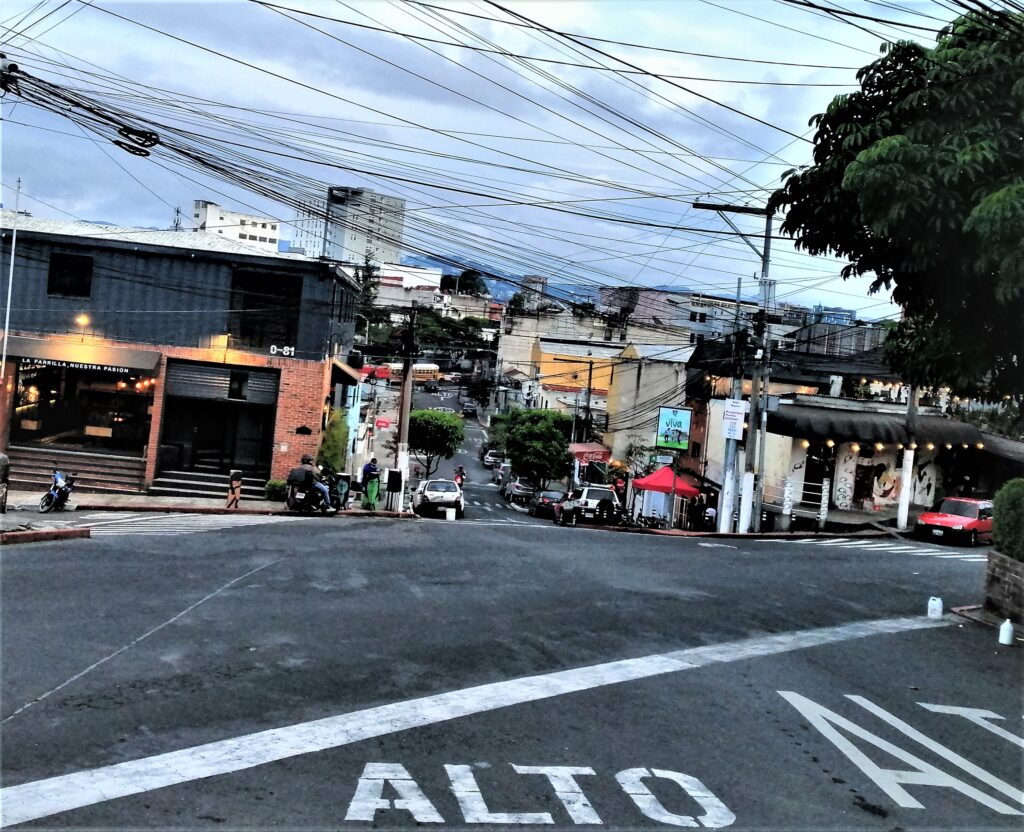
Atte for Coffee
This was the most impressive café I have ever been to. The local owner/barista Pablo is passionate and talks to you about coffee in either clear, native Guatemalan Spanish or good English. It’s his life. He is an OB Original Barista at the forefront of an evolving world coffee culture.
I made it a point to go three days in a row. I had V60s each day. He had three different kinds of freshly roasted local beans, that he ground on the spot. The most memorable was the fermented coffee with hints of cacao, and hazelnut since the coffee grew near these plants.
This place is a gem. It you desire to sip ultra-smooth coffee in a welcoming and comfortable setting, Atte for Coffee is a must.
Atte for Coffee is on via 6 3-30 across the street from Moonrise Comida Vegana. He is open from 10 am until 8 pm.
When I asked Pablo about where to purchase Guatemalan coffee to bring back, he wholeheartedly recommended another coffee shop in Zona 4.
Rojo Cerezo Coffee Culture
At Rojo Cerezo I had a hand-crafted chemex from another ultra-passionate local Guate barista.
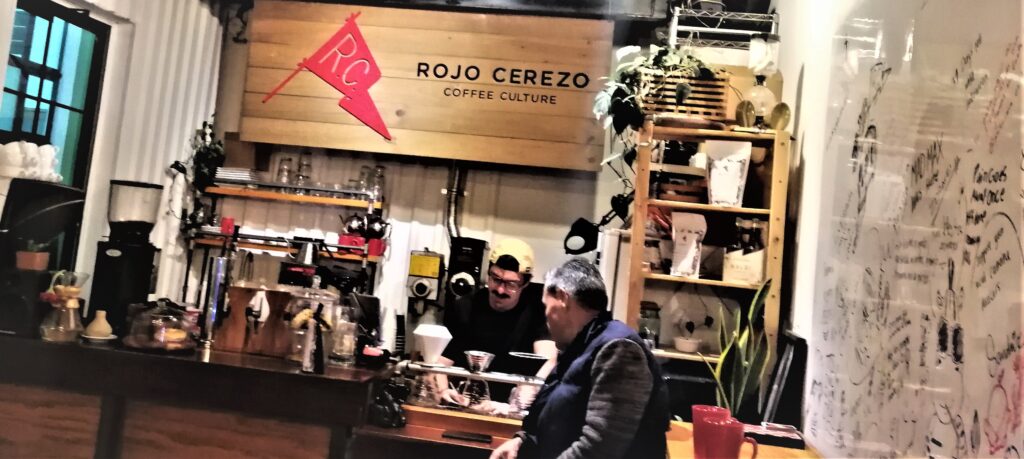
At Rojo Cerezo I bought 10 oz. bags of same-day roasted and packed local coffee beans. It was the best coffee I’ve purchased anywhere. The light color and smoothness, with hints of flower, cacao and other fruity flavors are a delight for anyone to sample, coffee connoisseur or not.
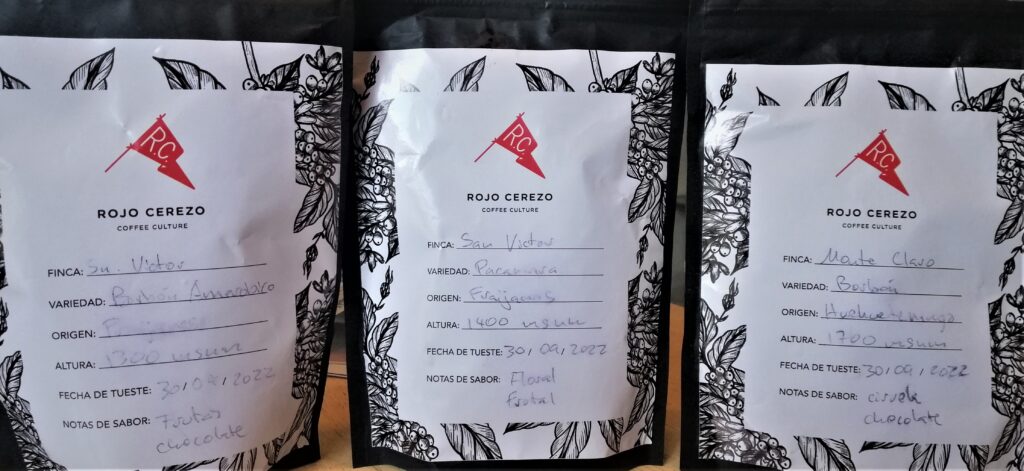
This is the first time I have had a barista write information about coffee, on the product. There are multiple coffee regions in Guatemala, wherehe tropical altitudes produce some of the best coffee on earth.
The local barista at Rojo Cerezo speaks Spanish and English. A bag of freshly roasted local Guatemalan coffee costs 90 Q ($11.49). This is for the upper-middle class and above; which it seems Zona 4 doesn’t have a shortage of.
Prerevolutionary Zona 1
I visited Zona 1 twice. It is the historic part of the city and home to the nice Mercado Central, which is a great place to purchase local nick knacks to bring home. Like most Latin markets there are fresh meals to eat there and food to take home.
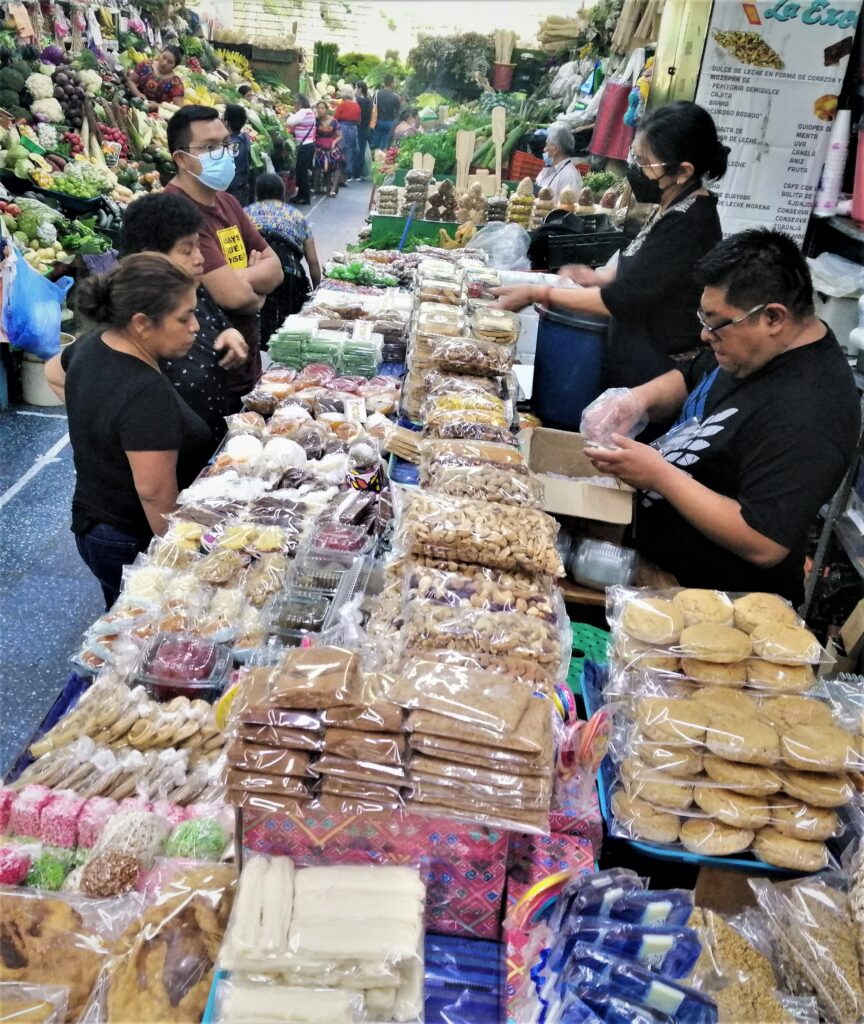
It took 45 minutes to walk from Zona 4 to Zona 1 where there is some eye-appeasing architecture to feast your gaze on.
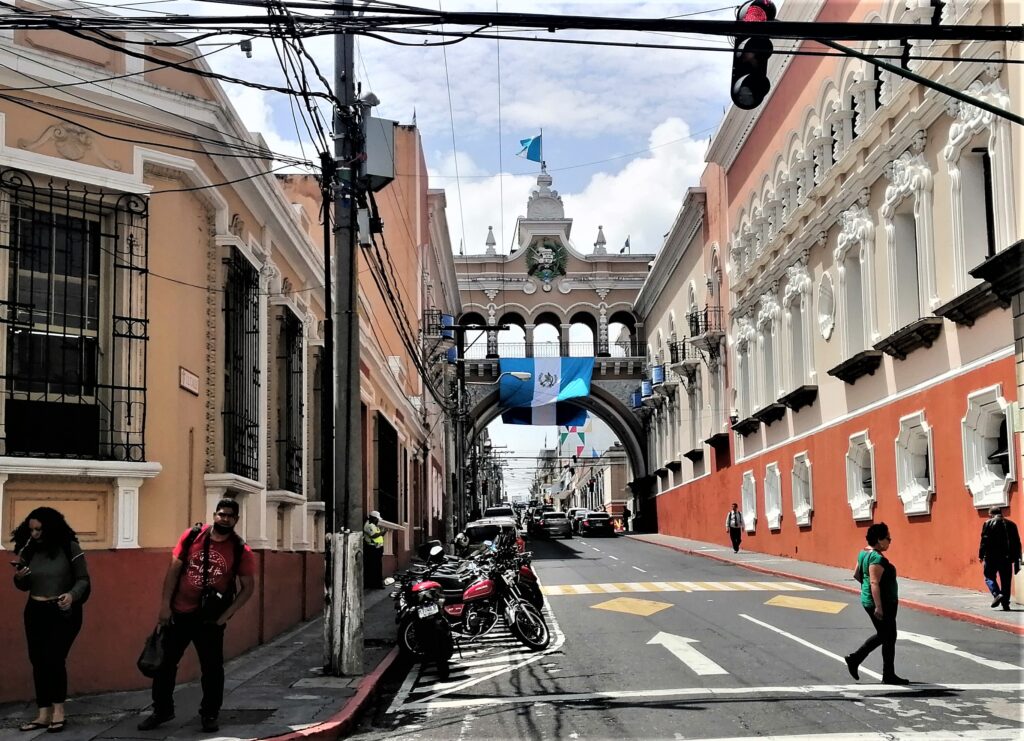
Otherwise, I visited the Zona Viva in Zona 10. I had quickly read a good review somewhere. What caught my eyes were mostly worldwide chain restaurants. It was too posh and cookie-cutter generic for my tastes. In hindsight, I would have chosen not to visit the Zona Viva.
I was glad I stayed in Zona 4. There are other worthy zones to stay in like 13 and 14. Apparently Zone 1 is one of the most inexpensive.
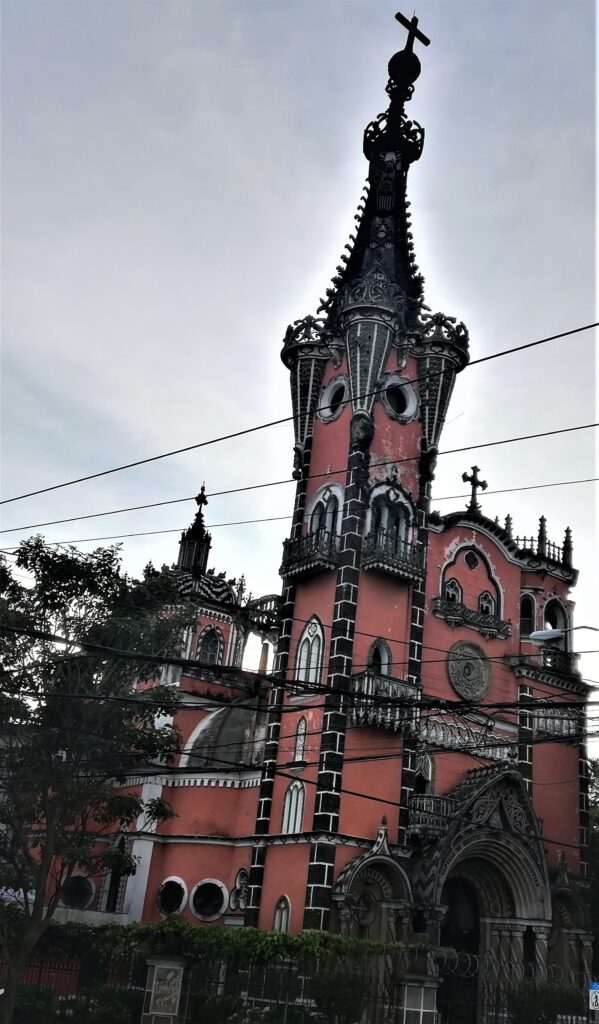
Just before arriving in a cab from where the bus dropped me, I noticed this surreal structure and said something like:
WOW! Amazing!
The driver had no idea what I was talking about as he was only focused on getting me to the address I’d given him.
I couldn’t wait to get settled into the guesthouse and then back out to take a look at this magical piece of building design.
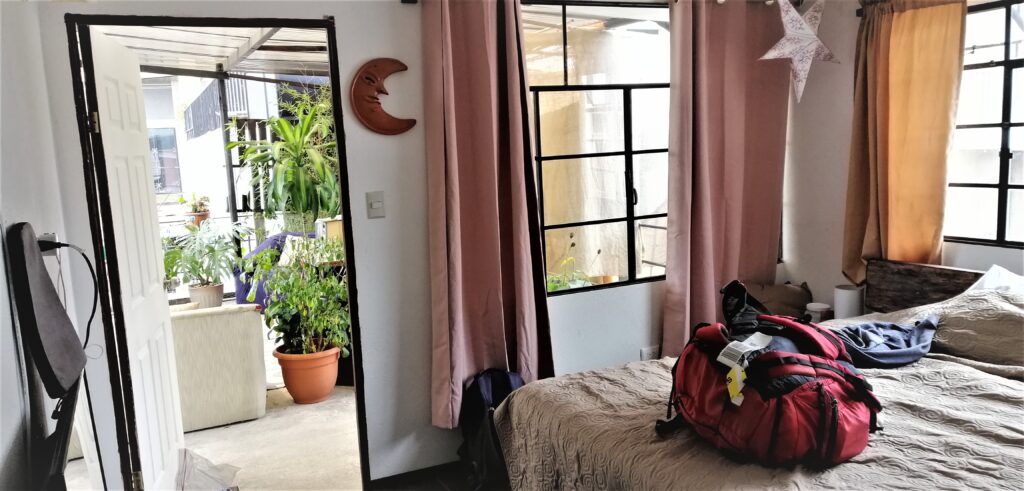
Estancia’s address is Via 7, 3-54, Zona 4. There’s no name outside, just the numbers. I recommend Estancia for its pleasant and comfortable feel, and the location was perfect.
Transportation
I mostly walked. There were a couple of times when a form of city transportation stopped and took me part of the way.
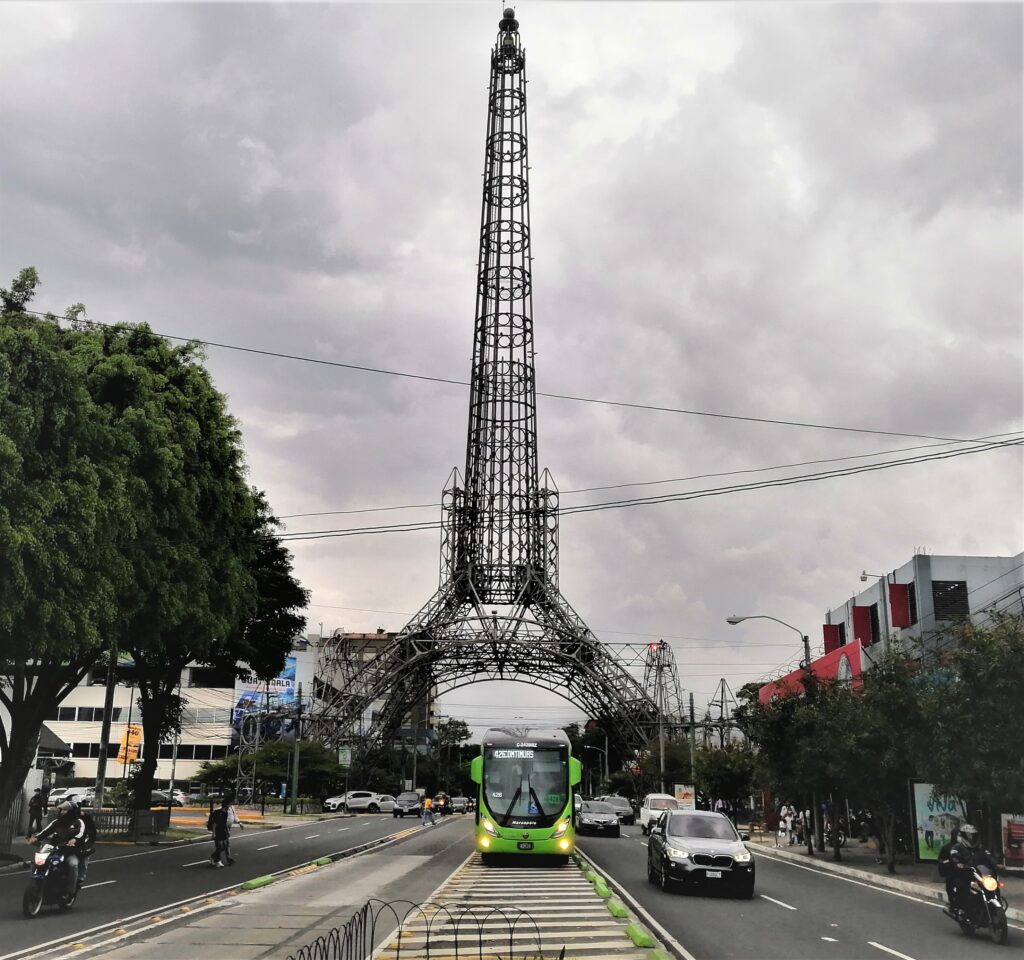
I used this interesting open-air exhibition in Zona 9 as a landmark since it was a 15-minute walk from where I stayed in Zona 4.
I took one taxi only because it was dark. I was in the Zona Viva at about 9 p.m. I probably could have walked but had valuables on me so I spent 40 Q, haggled down from 50 Q, for a cab ride back to Zona 4. It took eight minutes sans traffic in a comfortable, modern taxi.
That taxi was the only option I came across in upscale Zona Viva, part of Zona 10. Later, I realized that an Uber would have been more cost-effective.
I used Uber twice. It was inexpensive. It cost $2.88 from Zona 4 to the Parque Central and $4.68 from Zona 4 to the airport. Using the credit card gave me the best possible exchange rate, close to the published one.
if you’re drifting through Central America or flying in or out of this intriguing municipality, I believe that giving Guatemala City a go is a no brainer, if not a must.
It’s funny that before visiting I’d read more negative than positive things about Guatemala City, because while there, I only noticed positive things about this terrific travel destination.
Have you been to Guatemala City? Did you like it? Feel free to comment below.
Here is the complete set of photos from Guatemala City.
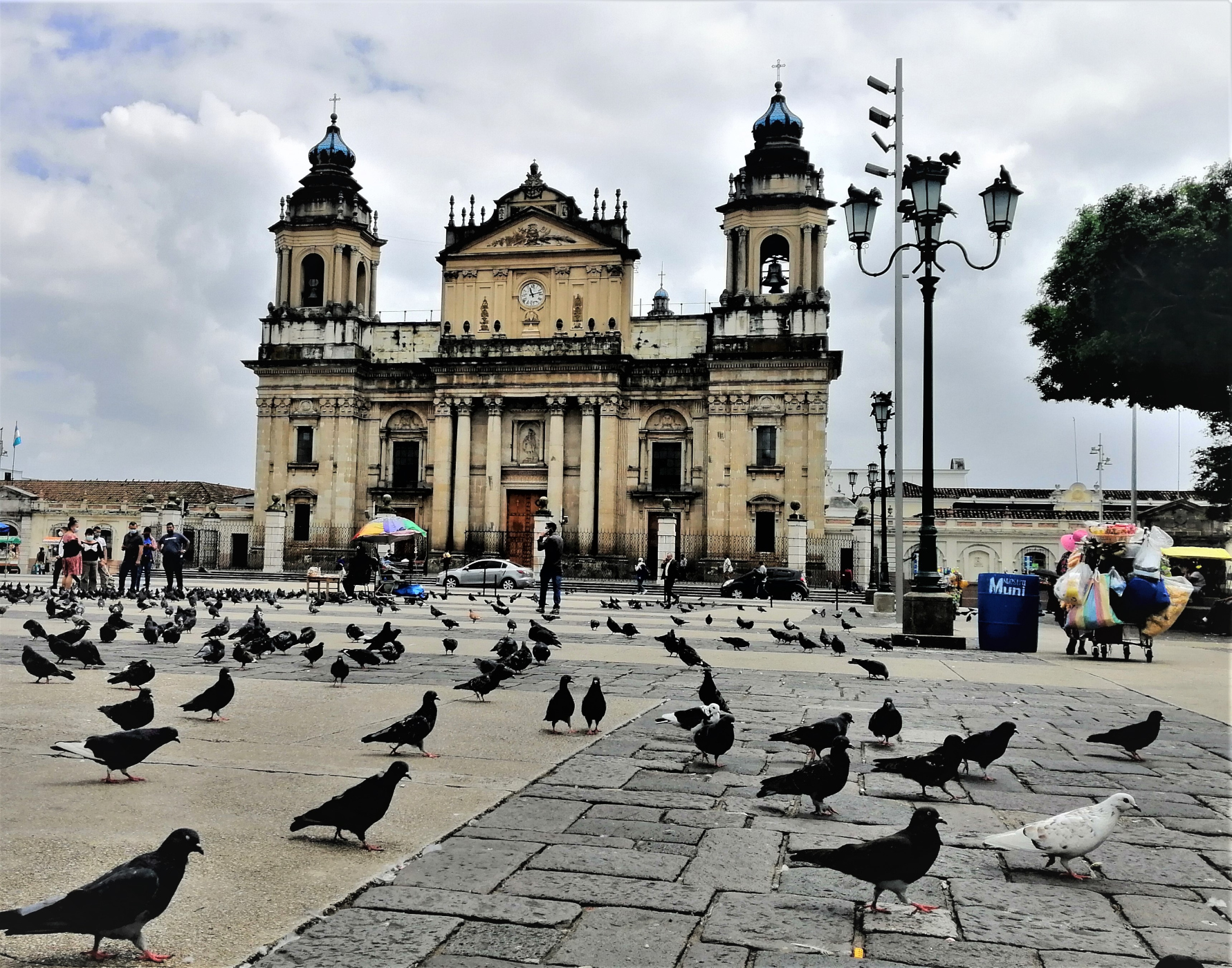

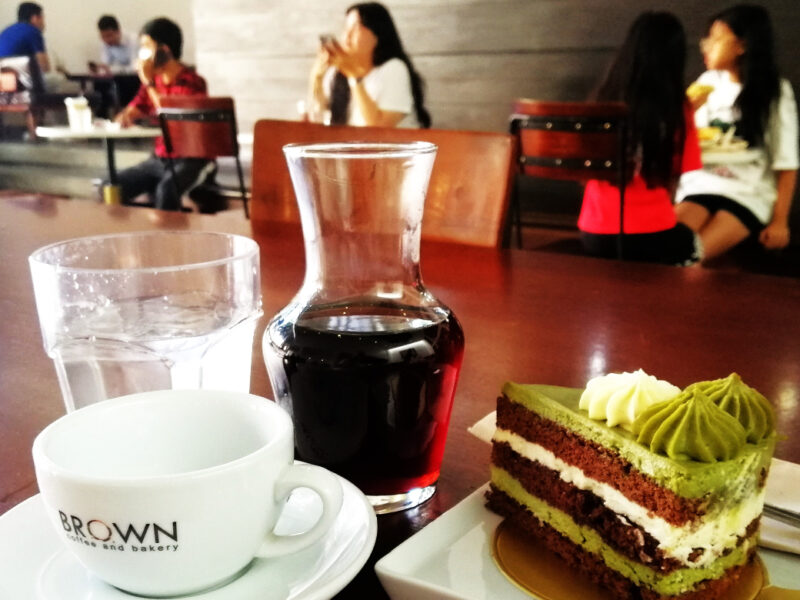
Wow!
Really interesting and great pictures.
Mucho Love